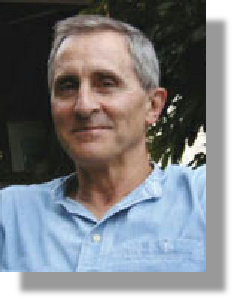


APPENDIX 3. Tolkien's philology as root and source of his fantasies.
This a good moment to bear in mind the philological sources of T's fantasy before going on to look at the nature of his Secondary or fantasy world, its characters and issues as well as some of his narrative skills.
Profr. T.S. Shippey was one of Tolkien's successors to the Chair of English
Language and Mediaeval Literature at Leeds university, and one of the few British
academic colleagues who saw no contradiction between T.'s professional linguistic
pursuits and fantasy writing. In 'The Road to Middle Earth'(a rigorous and engaging
study of Tolkien's developing art and its sources) he contends that OFS, because
it lacks philological bases and tries to argue in terms of the impact of literary
art, is not the best way to understand the value T. placed on Fantasy or where its
sources lay for him.(RTME pp38-
' None of these contains very much philology...and they have accordingly been fallen on gratefully by commentators who never wanted to learn any. However, philology still remains their essential guts: while they lead forward to fantasy they also look back to and rest on an intensely rigorous study of ' the word'.'
He reminds us of Grimm's division of philologists into two classes
(in his Deutsches Wörterbuch): those who study words 1.) for the sake of things, or 2.) only for the sake of words.(RTME p.42)
The second leads at best to lexicography, at worst to pedantry. Shippey puts
T. in the first category, and traces in the later academic essays and lectures of
the 1930s analysis of the words of the texts to see what feelings they conjure up.
An important e.g. is found the above-
It reveals T.'s concern that too much emphasis on finding modern equivalents
risks losing the vision that derives from the words. A.Saxon was for example rich
in kennings, those double nouns which suggested a variety of ways at looking at the
same object: e.g. swanrad (swan-
( laene lif) until the hour of fate ( metodsceaft)...for those who have ears to hear, profound feeling and poignant vision filled with the beauty and mortality of the world are aroused by brief phrases, light touches, short words resounding like harp strings sharply plucked...' A related concern is found in a letter to his aunt, Jane Naeve (l961) after she had returned some poems. He discusses words she thinks might be too inaccessible:
'...the meaning of fine words cannot be 'obvious'...least of all to adults who have
stopped listening to the sound because they think they know the meaning.' After going
into the nuances of argent and silver he comments: '...this writing down, flattening,
Bible-
It is also clear from his lecture/essay on Beowulf, 'The Monsters and The Critics', that he admired the Beowulf poet for including verbal material, as well as beliefs and practices from a past world (as he himself did in his fantasies) because it suited his heroic vision. E.g. the dragon in Beowulf is not just an emblem of certain evils but feels like a real physical danger. As Shippey says, he did not want dragons to be symbolic but to have 'a claw planted on fact'. This poet was doing in a less complex manner what T. did: both explored old stories (in T's case by studying a vast range of texts) and both fused them into a new whole. T deduced that various kinds of truth were embodied in the recurrent ingredients of what he read and from these he made a world of fiction(though very much rooted in the world we live in). But the binding force of this was language.
His letters reiterate this preoccupation. 'Just as the 1914 War burst on me
I made the discovery that legends depend on the language to which they belong, but
a living language equally depends on the legends which it conveys by tradition.'(L
p.231 §2) By way of argument he contended that Greek mythology depended more on the
beauty of its language and the wonderful names of its persons and places than on
its content and said he was more interested in ' the aesthetic rather than the functional
aspects of language'. When he devised his own he invented legends that somehow accorded
to the feelings and sound of that idiom, what he called 'legends' of the same 'taste'.
In an earlier letter he maintained:-